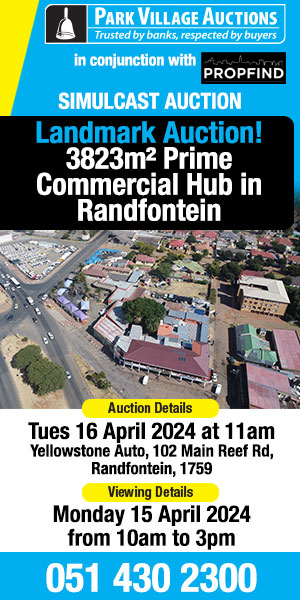
Soula Proxenos, Managing Director at International Housing Solutions, a leading global private equity investor in affordable housing, says this renewed enthusiasm for solving SA's housing challenges is very welcome, as it could augur in an era of dramatically increased access to housing and wealth creation among SA's lower-to-middle classes.
"Access to housing is like a ladder. If any rung is broken, it becomes impossible to traverse up and down. It is critically important to think about housing holistically and it is very encouraging to hear Ministers Nhlanhla Nene and Lindiwe Sisulu do just that," says Proxenos.
Speaking at the Banking Association of SA's recent annual summit, Finance Minister Nhlanhla Nene reportedly warned that the Treasury wouldn't be able to subsidise the inefficient financing of low-cost housing for much longer. The current backlog of state housing is 2.3 million – a figure that continues to grow every year.
Earlier this year, Human Settlements Minister Lindiwe Sisulu reportedly said that Government should not continue to provide large-scale housing for the poor, as it created a syndrome of dependency.
"The current approach has solved many problems, but is not sustainable and it needs to be refreshed, as both Minister Sisulu and Minister Nene suggest. The critical missing element is to start treating housing not only as shelter but as an asset.
With this mind set, the ability to partner with the private sector becomes more possible, helping to harness what each sector is best at achieving. This partnership gives us the real potential of addressing the housing hangover of Apartheid," says Proxenos.
Proxenos says that while subsidised housing is key in South Africa, it needs to become an efficient first rung on a ladder – not just the end point for lower income families.
"If so-called RDP/BNG housing can be thought of as not just shelter but an opportunity to create wealth and employment, then the investment that government is making into housing will return good dividends. But this can occur only if the title deeds to government subsidised housing are given to incumbents."
According to research undertaken by the Centre for Affordable Housing Finance in Africa, of the estimated 2.94 million subsidised housing units delivered by 2010, only 1.44 million were on the deeds registry – about 50%. This 50% comprised 24% of the total SA residential property market.
"If the other properties were formally registered, government subsidised housing stock would comprise 38% of the SA residential property market. Many of these units are now older than eight years, and so able to be sold in the resale market. This is significant resale market supply, which could provide the equity that low income subsidy beneficiary households could use to climb up to the next rung of the ladder," says Proxenos.
"For markets to work efficiently, there needs to be housing that 'graduating' subsidy beneficiary families can afford to buy, by selling their RDP/BNG houses and using this profit as a down-payment to a bigger house."
But Proxenos says there are two barriers to this occurring. "The one is that the selling price of RDP/BNG units is depressed – for a number of reasons, including low churn rates and the fact that the cost of the house, land and services is not transparent, i.e. the value is unknown.
Also, for the properties that are not yet formally registered, the incumbents can't sell for an optimum price because the buyer can't get finance – they have to buy with cash or a microloan, and this keeps prices down."
Because these 'informally sold' houses are not part of the formal system, they undermine their own value as well as the value of the neighbourhoods in which they are located, Proxenos notes.
She says the second part of what needs to be in place in order to fix the housing ladder, is the availability of housing that 'graduating families' can afford.
"This will further allow a swathe of previous RDP units to continuously be made available for sale to lower income families by the families who moved up the housing ladder."
But Proxenos says it is vital that the private sector is willing to both extend mortgages and build for this market.
"Private capital can and does play a role here. IHS is a perfect example of how private Institutional capital is investing in moderate income housing for sale and for rent," she says.
IHS, the pioneer in large-scale affordable housing provision in South Africa, recently launched its second fund after the success of its first fund, the SA Workforce Housing Fund (SAWHF). Close to R2 billion in investments by the SAWHF meant that more than 28 000 affordable homes, with a combined total value of more than R8.6 billion, could be constructed.
Due to the massive demand for stock in this middle market, which caters to people who earn too much to qualify for free government housing, but too little to find housing in the traditional market which caters mostly to middle-to-higher income buyers, IHS launched its second fund this year.
IHS Fund II will seek to raise R3 billion from institutional investors following attractive risk-adjusted returns for investors in its first fund, and has already secured significant commitments from a range of investors realising the economic and social value of this sector.
Proxenos says that should Government address its housing strategy as outlined, the market will expand organically to address the demand, which will further lead to new avenues of economic growth.
"But we need to get the ladder to work with all its rungs in place, and with families able to move using their appreciation from starter houses to fund their next house. If we don't, we'll remain forever with the same problems we have today."
- Free housing must become the first rung on the ladder, not the end-point
- Title deeds must be given to housing recipients to enable wealth creation









